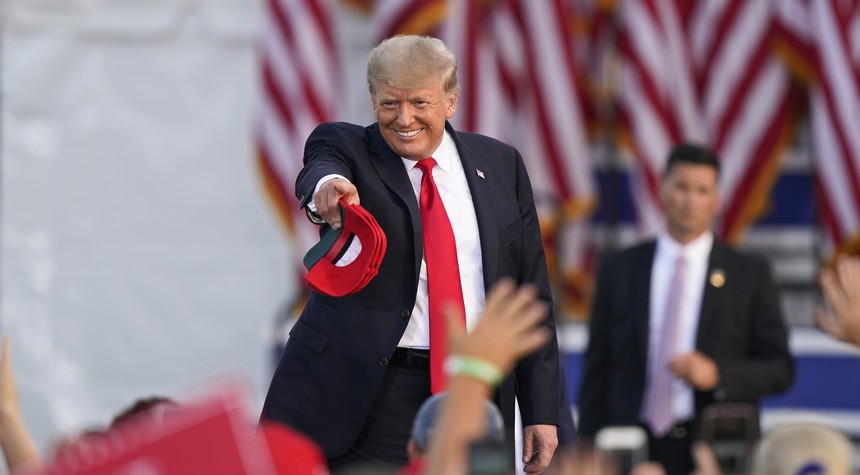At this point, with any new liberal media story that drops in regard to President Donald Trump, one has to employ the 48-hour rule.
Liberal media has a big freak-out over it. Then more facts start to come out, where you see it really is not what they reported, and/or it’s media twisting something to mean something other than what was meant.
We’ve seen this pattern again and again. Yet, they’re still employing it — and people are still falling for it.
On Friday, the New York Times published a story claiming even though Trump he was told by the DOJ that there was no evidence to support fraud, he told them to just say the election was corrupt.
Except that isn’t quite what what happened, and the sequence of what was said is important, as attorney Margot Cleveland was the first to point out.
If you look at the notes from the meeting with then-acting attorney general Jeffrey Rosen and the Deputy Attorney General Richard Donoghue (assuming the notes are accurate), Donaghue was talking about checking into the question of whether more ballots were cast in Pennsylvania than voters.
Then, if you look at the notes, you see the response from Trump is to that part — meaning that they hadn’t yet reached a conclusion about fraud. A fairly important difference. Trump also says he doesn’t expect them to change the outcome of the election, just to say that the election was corrupt. Another fairly important observation.
So, what the notes appear to be saying is, if they find something (fraud/election question), just say you found the problem (“corrupt”) and Trump will go from there. You can’t get the full understanding from notes. But, Trump specifically told them he doesn’t expect them to change the results. So, he specifically said the opposite of what the NY Times is implying. It only makes sense in the context of them finding a problem. If they found no fraud, but said there was fraud, that would be “changing the results.” So, he didn’t ask them to do that, as he himself said.
But, that’s why removing that comment from the context of the question about Pennsylvania and suggesting it was after they told Trump there was nothing to be found is dishonest, and changing the nature of what was actually said.
It’s like the Georgia phone call controversy, which was horrifically twisted into something it wasn’t, with media and Democrats trying to suggest Trump pressured Georgia officials when he (and his lawyer) were on a legal conference call with them — simply telling them to investigate the claims.

